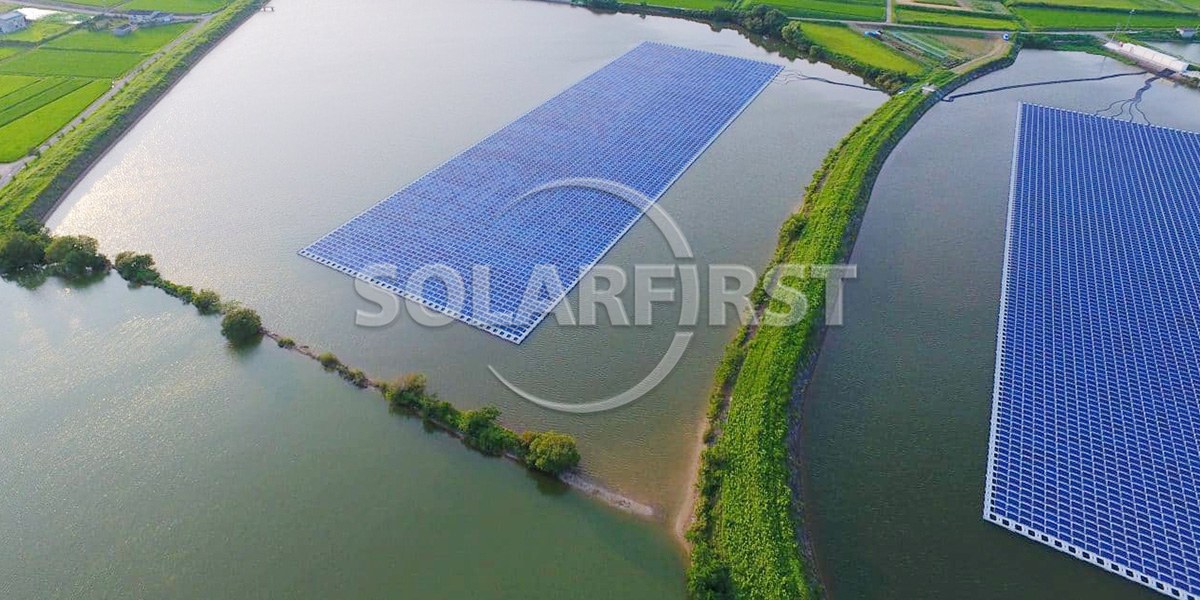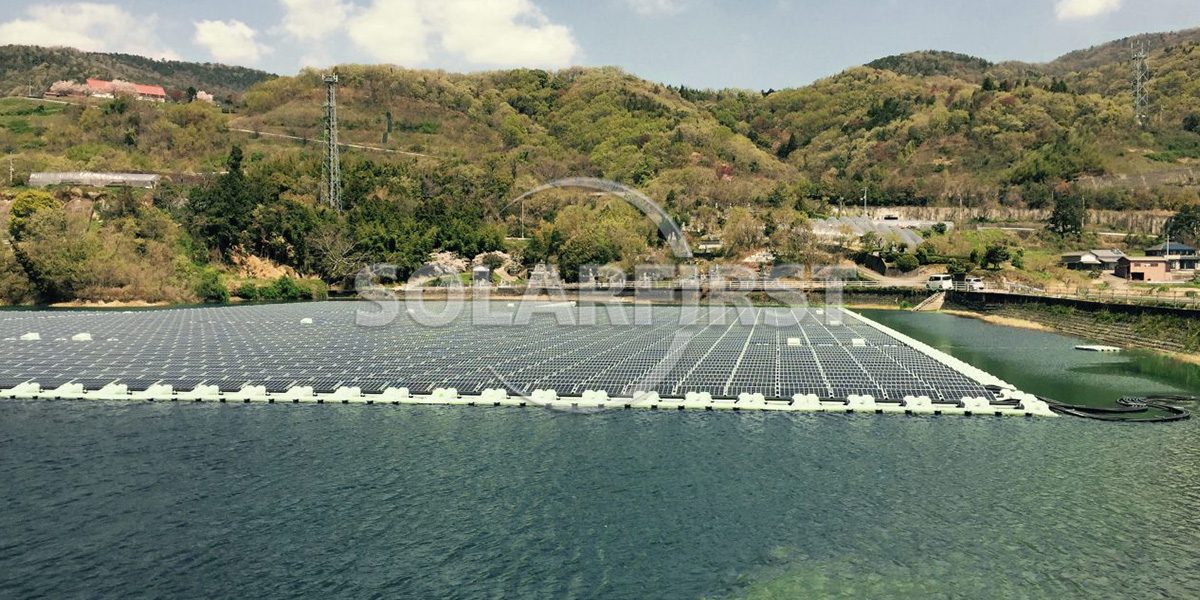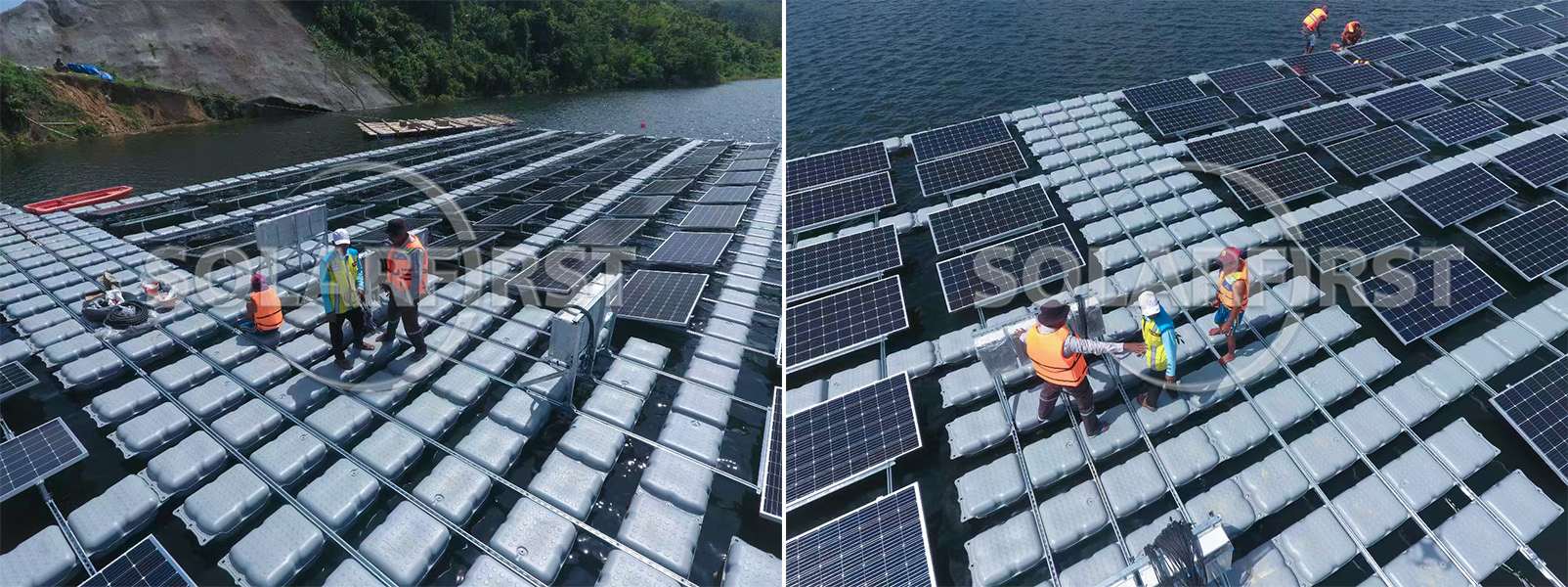Background:
As the lifeblood of national economic development, energy serves as both a critical growth engine and a primary focus for carbon reduction under China's "Dual Carbon" goals. Accelerating energy structure transformation is vital for advancing manufacturing energy efficiency and emissions reduction.

(The floating photovoltaic project of Solar First Group)
Policy-Driven Clean Energy Expansion
China's current clean energy portfolio primarily includes solar and wind power. The "2022 Energy Work Guidance" mandates vigorous development of wind-PV integration, specifically:
• Establishing new energy systems centered on large-scale renewable bases
• Utilizing efficient coal power for regional support
• Deploying ultra-high voltage transmission networks
• Optimizing offshore wind layouts with deep-sea demonstrations
• Advancing hydro-solar complementary bases
• Implementing county-wide rooftop distributed PV projects
• Launching localized "Thousand Village Wind Action" and "Thousand Household Lighting Action" initiatives
• Developing distributed wind/PV on oilfields, industrial sites, and industrial parks
• Enhancing renewable consumption mechanisms with provincial responsibility quotas
• Improving green certificate systems for renewable power

(The floating photovoltaic project of Solar First Group)
Beyond Wind and Solar: Tidal Energy Innovation
The concept of tidal-photovoltaic power stations integrates two complementary technologies:
1.Tidal power harnesses water-level differences between high/low tides to drive turbines
2.Photovoltaics convert sunlight directly into electricity via the photovoltaic effect
Traditional challenges include:
High infrastructure costs for tidal stations in deep-water harbors
PV generation limitations due to daylight/weather dependency
Breakthrough Integration: The Tidal-PV Hybrid Solution
On May 30, China's pioneering tidal-PV facility—National Energy Group Longyuan Power's Zhejiang Wenling Station—achieved full-capacity grid connection. This represents the nation's first successful integration of lunar tidal and solar energy through:
• Installing PV panels across tidal reservoir surfaces
• Creating coordinated tidal-PV generation cycles
• Stabilizing output by modulating tidal generation during PV fluctuations
• Maximizing marine resource utilization while boosting total yield
Expanding the "PV+" Ecosystem
Recent policy directives from the NDRC and National Energy Administration promote diversified applications:
• Developing standards for PV-integrated ecological projects (e.g., desert control)
• Transforming energy storage systems from grid-adaptive to grid-supportive
• Leveraging millisecond-response capabilities for enhanced grid stability
This technological convergence significantly advances new power system development and industrial energy restructuring.
• Leveraging millisecond-response capabilities for enhanced grid stability
This technological convergence significantly advances new power system development and industrial energy restructuring.

(The floating photovoltaic project of Solar First Group)
leave a message
Scan to wechat :
